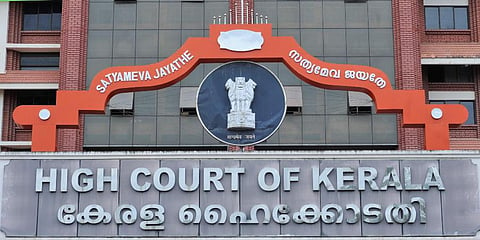

KOCHI: The Kerala High Court has declared that no third party can claim that a Muslim woman has violated religious beliefs by shaking hands with an adult male if neither of them has any objection to it.
Justice P V Kunhikrishnan said “shaking hands” is a traditional gesture that conveys greeting, respect, courtesy, agreement, deal, friendship, solidarity, etc.
The court made the remarks while dismissing a petition filed by Abdul Noushad of Malappuram seeking to quash a case against him.
The prosecution allegation was that the accused circulated a video containing his speech through WhatsApp, which stated that the girl had violated Shariat Law by shaking a hand with the then state finance minister, and as such, she, being a grown-up girl, had committed adultery by touching another man. The sequence of her handshake was displayed in the video, stated the police.
The young woman, a second-year law student at Markaz Law College, Kozhikode, got an opportunity to participate in an interactive session with Thomas Isaac in her college in 2016. After the session, the students were called up on to the stage to receive gifts. They accepted the gift after giving a handshake to the minister. However, the petitioner shared a video stating that the woman had violated Shariat Law.
The woman submitted that the circulation of the video brought disgrace to her and her family. The court said that a brave young Muslim girl came forward and said the circulation of the video violated her freedom of religious belief.
“In such situations, our Constitution will protect her interest. Moreover, society has to support her,” the HC said.
HC: No religious belief is above the Constitution, it is personal
“No religious belief is above the Constitution. The Constitution is supreme,” the court stated.
The court pointed out that in Islam, physical contact between unrelated members of the opposite sex, including a handshake, is generally considered ‘haram’ (forbidden).
According to Islam, the reason for this prohibition is modesty and humility, avoiding the potential temptation of ‘fitnah’ and maintaining moral boundaries. But the Quranic Verses emphasise personal choice as far as religion is concerned, it observed.
The court said religious beliefs are personal. There is no compulsion in religion, especially in Islam. One cannot compel another to follow the person’s religious practice. Religious practice is a personal choice of every citizen. Therefore, the girl has a right to follow a religious practice in her way. None can impose a religious belief on another, said the court.
Based on the girl’s complaint, the police had registered a case against the petitioner under Section 153 (Intentionally or wantonly provoking a riot through illegal means) of the IPC and Section 119 (a) (Degrade the dignity of women in public places) of the Kerala Police Act, 2011.